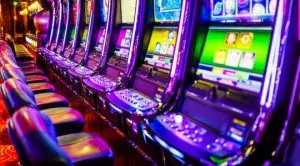 The city of Lower Hutt in the North Island is considering the introduction of a sinking lid policy on local poker machines, adopting a policy in line with its neighbouring cities in an effort to reduce gambling harm in the local community.
The city of Lower Hutt in the North Island is considering the introduction of a sinking lid policy on local poker machines, adopting a policy in line with its neighbouring cities in an effort to reduce gambling harm in the local community.
According to a report commissioned ahead of the city’s gambling policy review, each machine’s take rose by 66% in the city in the period from 2015 to 2020.
The Chairman of the Council’s Policy, Finance and Strategy Committee, Simon Edwards, explained that the local authorities have been considering the adoption of a more proactive approach to reducing gambling participation rates and gambling-related harm. Mr Edwards explained that Lower Hutt Commissioners were aware of the pressure inflicted by gambling on vulnerable communities and their residents and reminded that, at the same time, there was a large interest in the issue, particularly among the organisations that benefit from the funding provided by the controversial gaming machines.
The consultation started earlier in October. Under the provisions of the proposed sinking lid policy, establishments that host so-called pokies will no longer be allowed to introduce or transfer their electronic gaming machine licences to local clubs and pubs. Some other options that are being considered include the introduction of a limit on the number of poker machines permitted in local clubs and pubs, or making no change.
As revealed by Peter Dengate Thrush of New Zealand’s Gaming Machine Association, 0.2% of the adult residents of the city were categorised as problem gamblers. And while poker machines were a legally permitted form of entertainment, he praised the city council for seeking feedback on the electronic gaming machines and their impact on the community and the residents.
Spending on Pokies in Lower Hutt Proportionately Higher Than One in Neighbouring Cities
 Over the last few years, Lower Hutt’s neighbouring city councils Porirua and Wellington have both adopted sinking lid policies. A sinking lid policy was also introduced in Auckland City in 2013.
Over the last few years, Lower Hutt’s neighbouring city councils Porirua and Wellington have both adopted sinking lid policies. A sinking lid policy was also introduced in Auckland City in 2013.
According to the results of the review, the amount spent on poker machines of Lower Hutt’s residents was proportionately higher than the one registered in its neighbouring cities.
Figures provided by the Department of Internal Affairs show that Lower Hutt’s residents spent over NZ$23.5 million on poker machines between December 2020 and January 2021. The amount spent in neighbouring Wellington City, which population is double the size of Lower Hutt, over the same period of time was NZ$31.1 million.
A report issued by the New Zealand Institute of Economic Research found that the proportion of pokies in the city of Lower Hutt was higher in comparison to the proportion of electronic gaming machines available in neighbouring cities. Furthermore, controversial pokies were disproportionately situated in highly deprived areas.
Andree Froude, a spokesperson of the Problem Gambling Foundation, welcomed the review. Ms Froude shared that a lot of research had clearly been done so that some eye-opening data was available now. She further noted that high-deprivation areas were usually in the poorest communities, which made pokie losses even worse, as the money was spent by the people who could least afford to lose it on gambling. According to Ms Froude, no amount of funding that is being brought back into the community in the form of contribution is able to make up for the harm that is being inflicted by poker machines.
- Author


